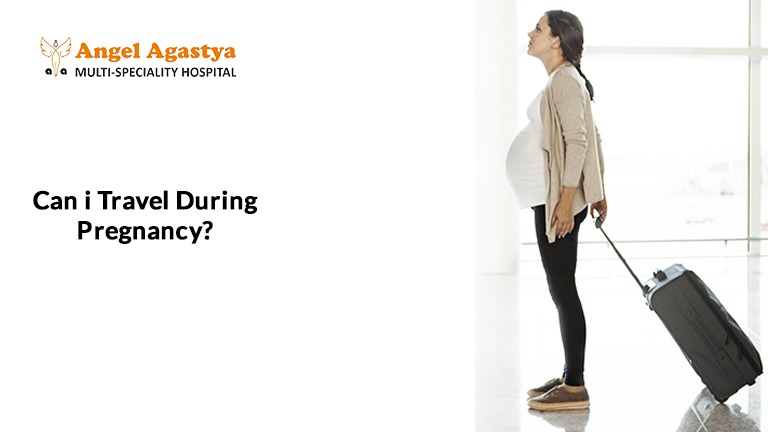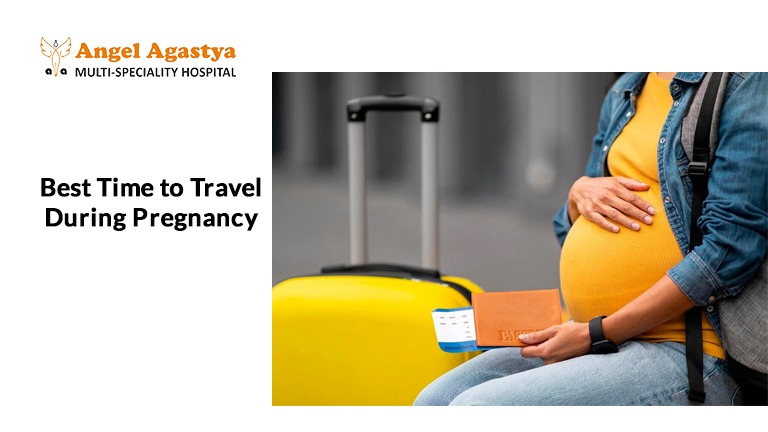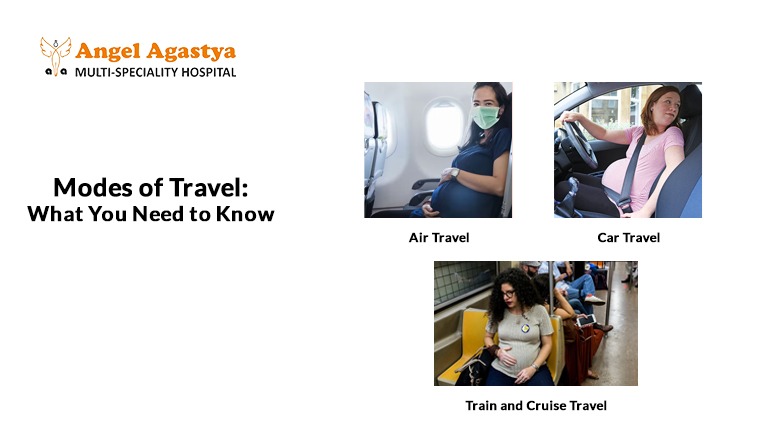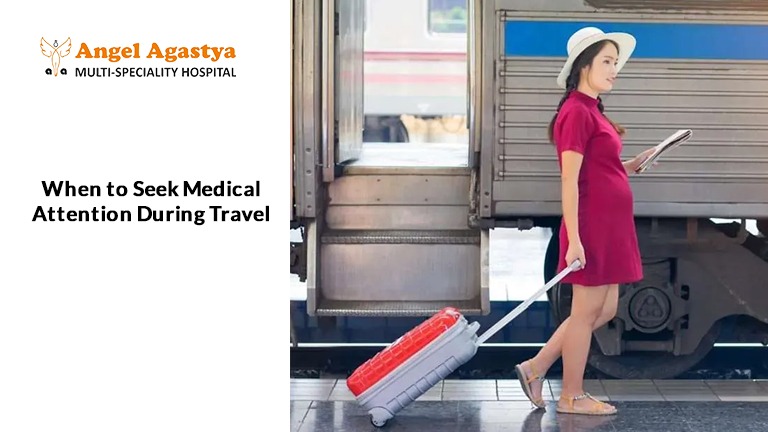Can I Travel During My Pregnancy? A Comprehensive Guide

A relaxing getaway before your baby arrives sounds like a dream, but is traveling during pregnancy safe?
Introduction :
Traveling During Pregnancy: Is It Safe for Expecting Mothers?
A babymoon before the baby arrives may sound like the perfect escape, but many expecting mothers wonder: Is traveling during pregnancy safe? Whether it’s a relaxing getaway, a family visit, or a work trip, concerns about safety, comfort, and health often arise.
The good news is that traveling during pregnancy is generally safe for most women, provided they take the right precautions. However, every pregnancy is different, and factors like trimester, health conditions, and mode of transportation can influence safety.
- Best Time to Travel: The second trimester (weeks 14-28) is often considered the safest and most comfortable period for travel.
- Safe Travel Options: Air travel is generally safe until 36 weeks, but always check airline policies. Car and train travel can also be convenient with frequent breaks.
- Essential Tips for a Comfortable Trip: Stay hydrated, wear comfortable clothing, avoid prolonged sitting, and consult your doctor before making travel plans.
By understanding traveling during pregnancy risks and precautions, expecting mothers can enjoy a stress-free and enjoyable trip while prioritizing their health and their baby’s well-being.
General Guidelines for Traveling During Pregnancy
While traveling during pregnancy, it’s important to consider timing, mode of transport, and health factors. Let’s break it down:
Best Time to Travel During Pregnancy

Traveling during pregnancy can be a wonderful experience when done at the right time. The second trimester (14-28 weeks) is widely regarded as the safest and most comfortable period for travel. During this time, many women experience fewer pregnancy-related discomforts, and the risk of complications is significantly lower compared to the first and third trimesters.
The good news is that, in most cases, traveling during pregnancy is safe with the right precautions. However, every pregnancy is different, and understanding the risks and best practices is key to ensuring a comfortable and stress-free journey.
First Trimester: Proceed with Caution
- Traveling during the first trimester can be challenging due to nausea, vomiting, fatigue, and heightened sensitivity to smells.
- While travel does not increase the risk of miscarriage, the discomfort of morning sickness and exhaustion may make long trips difficult.
- It’s important to stay hydrated, take frequent breaks, and listen to your body.
Second Trimester: The Best Time for Traveling During Pregnancy
- By the second trimester, most women experience an increase in energy levels and a decrease in nausea.
- The risk of pregnancy complications, such as miscarriage or preterm labor, is relatively low.
- Mobility remains easier, making long trips more manageable.
- This is the best time for a babymoon or a necessary work-related journey.
Third Trimester: Increased Risks and Travel Restrictions
- As the belly grows, comfort and mobility become more challenging.
- The risk of preterm labor and complications increases in the later weeks.
- Many airlines impose travel restrictions beyond 36 weeks, and some require a doctor’s note after 28 weeks.
- Long car rides or flights may cause discomfort, swelling, and an increased risk of blood clots.
By planning your trip during the second trimester, you can enjoy a safe and stress-free travel experience while prioritizing your health and your baby’s well-being.
Modes of Travel: What You Need to Know
Traveling during pregnancy can be a smooth experience with the right precautions. Whether you’re flying, driving, or taking a train or cruise, it’s essential to prioritize safety and comfort.

1. Air Travel: Flying While Pregnant
Flying is generally safe during pregnancy, especially in the second trimester, but taking precautions ensures a comfortable journey.
- Choose an aisle seat for easy restroom access and extra legroom.
- Move frequently to prevent blood clots (DVT) by walking every hour.
- Wear compression socks to improve circulation and reduce swelling.
- Stay hydrated to prevent dehydration from cabin pressure.
- Check airline policies – Most airlines restrict travel after 36 weeks, and some require a doctor’s clearance after 28 weeks.
2. Car Travel: Road Safety for Pregnant Women
Road trips can be enjoyable but require extra breaks and precautions.
- Wear a seatbelt correctly – Position the lap belt under your belly, across your hips.
- Take frequent stops to stretch, walk, and use the restroom.
- Bring a pillow for back and lumbar support.
- Avoid long, uninterrupted drives to prevent swelling, discomfort, and circulation issues.
3. Train and Cruise Travel: Alternative Travel Options
Trains and cruises provide more mobility, but certain factors should be considered.
- Cruises: Many cruise lines restrict travel after 24-28 weeks due to limited onboard medical facilities. Always check their pregnancy policy.
- Trains: Offer more space to move around, reducing discomfort, but check for medical care availability at stops.
By choosing the right travel method and planning ahead, you can enjoy a safe and stress-free journey during pregnancy while ensuring the well-being of both you and your baby.
Important Factors to Consider Before Traveling

Traveling during pregnancy requires careful planning to ensure both safety and comfort. Before booking your trip, evaluate your health, pregnancy status, and travel destination to minimize risks and ensure a smooth journey.
1. Health Conditions and Pregnancy Complications
Certain pregnancy complications may make travel riskier. Always consult your doctor if you have:
- Preeclampsia (high blood pressure, swelling, and protein in urine)
- Gestational diabetes, which requires dietary management and insulin monitoring
- Placenta previa, where the placenta covers the cervix, increasing the risk of bleeding
- A history of preterm labor, increasing the likelihood of early delivery
- Multiple pregnancies (twins, triplets), which are often associated with higher risk factors
If you have any of these conditions, your doctor may advise against long-distance travel or suggest additional precautions.
2. Destination Considerations
Your travel destination plays a crucial role in ensuring a safe trip. Keep these factors in mind:
- Medical Facilities: Research nearby hospitals and emergency care centers before you travel.
- Food and Water Safety: Stick to hygienic restaurants and bottled water to avoid food poisoning or infections.
- Altitude: High-altitude areas can lead to breathlessness, dizziness, and discomfort for pregnant women.
- Infectious Diseases: Some regions may pose risks like Zika virus, which is dangerous for unborn babies. Check travel advisories before booking.
3. Travel Insurance: Protecting Your Pregnancy
Invest in pregnancy-inclusive travel insurance that covers:
- Emergency medical care
- Unexpected pregnancy complications
- Trip cancellations due to health concerns
By taking these precautions before traveling during pregnancy, you can ensure a safe, comfortable, and stress-free journey for both you and your baby.
Tips for Comfortable and Safe Travel
Traveling during pregnancy can be a wonderful experience if planned carefully. Whether you’re going on a short trip or a long journey, taking precautions ensures both comfort and safety for you and your baby. Here are essential tips to help you have a smooth and stress-free trip.
Before Traveling
- Consult your doctor to confirm it’s safe for you to travel, especially if you have any pregnancy complications.
- Get travel insurance that covers pregnancy-related emergencies, medical care, and trip cancellations.
- Pack a pregnancy travel kit with:
- Prenatal vitamins to maintain essential nutrients.
- Healthy snacks to prevent nausea and maintain energy levels.
- Medications approved by your doctor.
- Comfortable clothing and footwear to reduce swelling and discomfort.
- Research medical facilities near your destination in case of an emergency.
During the Trip
- Avoid overexertion – plan rest stops or breaks in your itinerary to prevent fatigue.
- Stay hydrated – drink plenty of water to avoid dehydration.
- Wear loose, breathable clothing and supportive shoes to maintain comfort.
- Move frequently – stretch your legs and walk around every hour to prevent blood clots.
- Eat light, frequent meals to avoid nausea and indigestion.
By following these traveling during pregnancy tips, you can enjoy a safe and comfortable journey while prioritizing your well-being.
When to Seek Medical Attention During Travel

Traveling during pregnancy can be safe with proper precautions, but it’s crucial to recognize warning signs that may indicate complications. If you experience any of the following symptoms, seek immediate medical attention to protect both you and your baby.
Serious Symptoms to Watch For
- Vaginal bleeding – Any bleeding during pregnancy, especially heavy or accompanied by pain, could indicate a serious problem.
- Severe abdominal pain or contractions – Persistent pain or early contractions may signal preterm labor or other complications.
- Decreased fetal movement – A noticeable reduction in baby’s movements may indicate distress. If you feel fewer kicks than usual, consult a doctor.
- Dizziness or fainting – Low blood pressure, dehydration, or anemia can cause dizziness, increasing the risk of falls.
- Blurred vision or severe headaches – These can be signs of preeclampsia, a potentially dangerous condition that affects blood pressure.
- Swelling in the hands, face, or legs – Sudden or extreme swelling could indicate preeclampsia or circulation issues.
If you notice any of these symptoms while traveling during pregnancy, contact a healthcare provider immediately or visit the nearest medical facility. Your safety and your baby’s health should always be the top priority.
Conclusion
Traveling during pregnancy can be a wonderful experience, allowing you to relax, spend time with loved ones, or attend important commitments before your baby arrives. However, proper planning and precautions are essential to ensure both your safety and your baby’s well-being.
Key Considerations for a Safe Trip
- Timing Matters – The second trimester (14-28 weeks) is often the best time to travel, as morning sickness has usually subsided, and energy levels are higher.
- Consult Your Doctor – Before making travel plans, get medical clearance, especially if you have pregnancy complications like high blood pressure, gestational diabetes, or a history of preterm labor.
- Choose Comfortable Transportation – Whether flying, driving, or taking a train, prioritize comfort and mobility by taking breaks, stretching, and staying hydrated.
- Pack Smart – Bring essential pregnancy items such as prenatal vitamins, healthy snacks, a refillable water bottle, and comfortable clothing.
FAQs
Traveling during pregnancy can be safe and enjoyable if done with proper precautions. Below are common questions expectant mothers have about travel safety, timing, and comfort.
1. Can I travel during pregnancy by plane?
- Yes, air travel is safe for most pregnant women until 36 weeks, but it’s important to check airline policies and consult your doctor before flying.
2. When is the safest time for traveling during pregnancy?
- The second trimester (14-28 weeks) is usually the safest and most comfortable time to travel, as morning sickness subsides and the risk of complications is lower.
3. Can traveling during pregnancy cause miscarriage?
- Travel itself does not cause miscarriage, but stress, fatigue, and underlying health conditions can increase risks.
4. Is it safe to go on a cruise while pregnant?
- Yes, but most cruise lines restrict travel beyond 24-28 weeks due to limited medical facilities onboard.
5. Can I travel long distances by car during pregnancy?
- Yes, but take frequent breaks to stretch, stay hydrated, and reduce the risk of blood clots.
6. Are there any restrictions on traveling during pregnancy?
- Airlines and cruise lines have cut-off periods (usually 28-36 weeks) for travel. Always check their policies and get medical approval.
7. Do I need a doctor’s note for traveling during pregnancy?
- Some airlines require a medical clearance note after 28 weeks of pregnancy.
8. How can I make traveling more comfortable during pregnancy?
- Wear loose clothing, stay hydrated, take frequent walks, and use pillows for back and leg support.
9. Can I travel internationally while pregnant?
- Yes, but check for health risks, vaccination requirements, and medical facilities at your destination before booking your trip.
10. What should I pack when traveling during pregnancy?
- Carry prenatal vitamins, medical records, healthy snacks, water bottles, loose clothing, and travel insurance details to ensure a smooth journey.
With proper planning and awareness, traveling during pregnancy can be a safe and enjoyable experience. Always prioritize your comfort and well-being while making travel arrangements.

